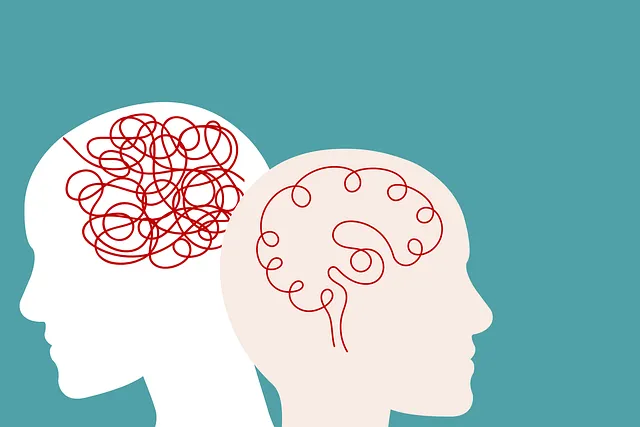Wheat Ridge Kaiser Permanente psychiatry offers specialized mental wellness coaching programs, integrating evidence-based techniques to help individuals manage stress and overcome challenges. Their tailored approach involves initial assessments, structured sessions combining education and practical skills, active listening, goal setting, and reflective practices. Incorporating cognitive-behavioral therapy (CBT), mindfulness, and motivational interviewing, along with cultural competency training, ensures a holistic, effective program. Success is measured through KPIs focusing on symptom improvements, emotional intelligence, and self-care routine development, demonstrated through regular check-ins and follow-up assessments.
Mental wellness coaching programs are gaining prominence as a vital component of modern healthcare. This article explores the rising demand for such initiatives, focusing on the pioneering work of Wheat Ridge Kaiser Permanente Psychiatry. We delve into the development process, highlighting key components and evidence-based strategies. By integrating effective practices, these programs offer optimal support for participants’ mental health journeys. Through evaluation metrics, we measure their impact, providing insights into their success and potential to transform lives.
- Understanding Mental Wellness Coaching: A Growing Need in Modern Healthcare
- The Role of Wheat Ridge Kaiser Permanente Psychiatry in Program Development
- Designing Effective Coaching Programs: Key Components and Strategies
- Integrating Evidence-Based Practices for Optimal Results
- Measuring Success and Impact: Evaluation Metrics for Mental Wellness Coaching
Understanding Mental Wellness Coaching: A Growing Need in Modern Healthcare

In today’s fast-paced world, mental wellness has emerged as a paramount concern, driving the demand for specialized coaching programs. Mental Wellness Coaching is a supportive process that empowers individuals to navigate and improve their emotional well-being. It goes beyond traditional therapy by focusing on enhancing coping skills development and fostering resilience in everyday life. At Wheat Ridge Kaiser Permanente psychiatry, we recognize the growing need to offer accessible mental health awareness resources that cater to diverse populations.
By integrating evidence-based techniques, these coaching programs aim to promote emotional well-being promotion techniques, enabling clients to manage stress, overcome challenges, and cultivate a deeper sense of balance. The demand for such services is rising as people seek proactive ways to maintain their mental wellness amidst the constant pressures of modern life.
The Role of Wheat Ridge Kaiser Permanente Psychiatry in Program Development

Wheat Ridge Kaiser Permanente Psychiatry plays a pivotal role in shaping the development of mental wellness coaching programs. As a leading healthcare provider, their expertise and resources contribute significantly to creating evidence-based interventions tailored to individual needs. The team of seasoned psychiatrists leverages scientific research and clinical experience to design programs that effectively address various mental health challenges.
This psychiatric department is renowned for its comprehensive approach, integrating various therapeutic modalities to offer personalized support. Their input ensures that the coaching programs incorporate effective strategies for mood management and stress reduction methods, as demonstrated through their successful Mental Wellness Podcast Series Production. By fostering partnerships with like-minded organizations, Wheat Ridge Kaiser Permanente Psychiatry continues to innovate, enhancing the accessibility and quality of mental wellness resources for a broader community.
Designing Effective Coaching Programs: Key Components and Strategies

When developing mental wellness coaching programs, particularly tailored for healthcare providers like those at Wheat Ridge Kaiser Permanente psychiatry, it’s crucial to incorporate key components that foster meaningful and lasting change. Effective coaching should begin with a comprehensive assessment to understand each individual’s unique challenges, strengths, and goals. This personalized approach ensures that the coaching program aligns with their specific needs, whether focusing on confidence-boosting strategies or integrating self-awareness exercises.
The next critical step is designing structured yet flexible sessions that combine educational content with practical skills development. Incorporating evidence-based techniques from burnout prevention strategies for healthcare providers can help participants manage stress and maintain resilience in their demanding professions. Through active listening, goal setting, and reflective practices, coaches guide clients towards cultivating mental wellness, enhancing job satisfaction, and improving overall quality of life.
Integrating Evidence-Based Practices for Optimal Results

Integrating evidence-based practices is paramount in developing effective mental wellness coaching programs. At Wheat Ridge Kaiser Permanente psychiatry, professionals emphasize a holistic approach that combines cognitive-behavioral therapy (CBT), mindfulness techniques, and motivational interviewing to address diverse client needs. CBT helps individuals identify and challenge negative thought patterns, while mindfulness enhances emotional regulation by teaching present-moment awareness.
Moreover, healthcare provider cultural competency training is integral to ensuring inclusive care. By understanding and respecting clients’ unique backgrounds, coaches can tailor interventions that resonate with different cultural perspectives. This personalized approach not only improves program outcomes but also fosters a sense of trust and engagement, ultimately contributing to the development of robust self-care routines for better mental health.
Measuring Success and Impact: Evaluation Metrics for Mental Wellness Coaching

Measuring the success and impact of mental wellness coaching programs is essential to ensure they are effective and making a positive difference in participants’ lives. At Wheat Ridge Kaiser Permanente psychiatry, evaluative metrics play a crucial role in understanding the program’s overall effectiveness. Key performance indicators (KPIs) should include self-reported improvements in symptoms, such as reduced anxiety or depression, enhanced emotional intelligence, and better coping strategies.
Additionally, tracking metrics related to self-esteem improvement and self-care routine development for better mental health can provide valuable insights. Regular check-ins and follow-up assessments allow coaches to gauge progress, identify areas of need, and adapt coaching strategies accordingly. These evaluations not only help in refining the program but also serve as a testament to the impact mental wellness coaching can have on fostering resilience and overall well-being.
Mental wellness coaching programs, pioneered by institutions like Wheat Ridge Kaiser Permanente psychiatry, are revolutionizing modern healthcare. By integrating evidence-based practices and focusing on key components such as empathy, goal setting, and skills development, these programs offer a holistic approach to improving mental health outcomes. Effective coaching not only enhances individual well-being but also contributes to a vibrant and resilient community. As the need for accessible, supportive mental health services continues to grow, evaluating and refining these programs will be crucial to ensure their impact and success.






